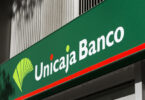On the 4th October, it was reported that the Spanish Association of Registrars is working on a blockchain property registry for tourist rentals. The Regturi project hopes to certify tourist properties to protect visitors from fraud and efficiently share data between government administrations.
In Spain, a tourist checking in to a hotel must show their passport as identification. Holiday rental properties, particularly those owned and rented privately, struggle to comply with this law. Often owners will ignore it rather than go through the complex process of sharing the tourist’s ID with authorities.
Another issue, identified by the Spanish Treasury and Tax Agency, is that rental properties are often not registered as such. This means they are not appropriately taxed, and lack of regulation could lead to scams on tourists who arrive to find they have no property to stay at.
The nation’s Association of Registrars hopes to address these problems with a blockchain-based registry of tourist properties. This way, homes and their owners can be certified and regulated as rentals. If the property complies with Spanish regulations, the registry will issue a tourist certificate immutably linked to the home.
The system could additionally allow for efficient sharing of visitor passports with the relevant officials. This provides peace of mind for the tourist, since the property has a tourist certificate, and the authorities who can ensure that the owner can legally rent out the property. If any dispute occurs, the tamper-proof data registry can be consulted.
Yesterday’s article points out the issue of different territorial laws and hence separate registries. With blockchain, it appears the Association of Registrars is planning to create a universal platform which takes local regulations into account without hindering interoperability.
Indeed, the Association separately revealed the Regturi project as part of AI and blockchain solutions for proof of identity and the registration of property. According to the statement: “This registry is intended to stop fraud, protect the user and collaborate with other administrations, such as tax.”
While the use of blockchain for tourist rentals seems to be a novel application, the technology is used widely in real estate. Today, it was revealed that South Australia is exploring blockchain for conveyancing. Meanwhile, the UAE, Mexico, and UK land registries have adopted solutions with the technology. Firms in Japan and Australia are also using blockchain for rental contracts.






